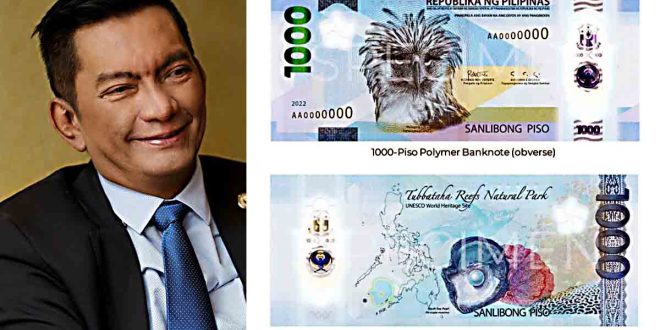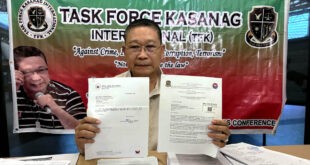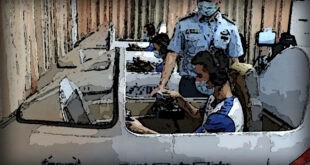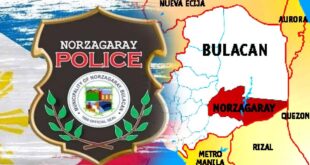HUMIHINGI ng paglinaw si Albay Rep. Joey Salceda sa Bangko Sentral ng Pilipinas sa pahayag nito patungkol sa bisa ng ‘damaged’ P1000 polymer bills na ilalabas ng gobyerno.
Ayon kay Salceda (Albay, 2nd district) kailangan linawin ni Bangko Sentral ng Pilipinas (BSP) Governor Felipe M. Medalla kung mawawalan ba ng halaga ang P1,000 perang papel sakaling magkaroon ito ng gusot o sira.
Si Salceda, hepe ng House Ways and Means Committee, ay nangangasiwa rin sa “monetary and financial affairs of the national government” ayon sa Congressional rules.
“I understand that one of the primary motivations for shifting to the polymer-based bill was that it is more durable than the paper bills. However, the lack of guidelines on what constitutes still-valid legal tender and which bills are damaged beyond being acceptable by business establishments has led to confusion in ordinary cash transactions,” ani Salceda sa liham kay Medalla.
“As such, to resolve these concerns, may I request that the Bangko Sentral ng Pilipinas (BSP) issue guidelines on accepting polymer P1000 bills, and what remedial recourses cash-holders can resort to, should their polymer bills no longer be acceptable to establishments. I understand that, with the paper bills at least, damaged bills could still be exchanged with banks and the BSP,” dagdag ni Salceda.
Giit ni Salceda, ang halaga ng pera ay hindi nababawasan dahil sa itsura nito.
“In theory and in usual practice, the value of money is not affected by its appearance. What matters is the validity of the promise embedded in the currency. That should determine the value.”
“Money is fungible, so you should be able to exchange one bill with another and not lose value. One folded bill should be just as good as a bill not folded.” (GERRY BALDO)
 HATAW! D'yaryo ng Bayan hatawtabloid.com
HATAW! D'yaryo ng Bayan hatawtabloid.com






















